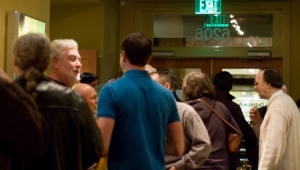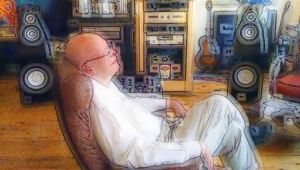| Columns Retired Columns & Blogs |
It's like that, isn't it?I've been collecting classical music for all of my 'hifi' existence. I don't really care for it and I almost never play any of it (Mozart and Bach are the exceptions, Beethoven is definitely an acquired taste)..but I DO have about 500-700 classical albums, all done by the 'right' composers, and recorded by the right people. Ie, the ones that people say are the more involving performances. Yah never know, someday I might appreciate them more than I do now.

























